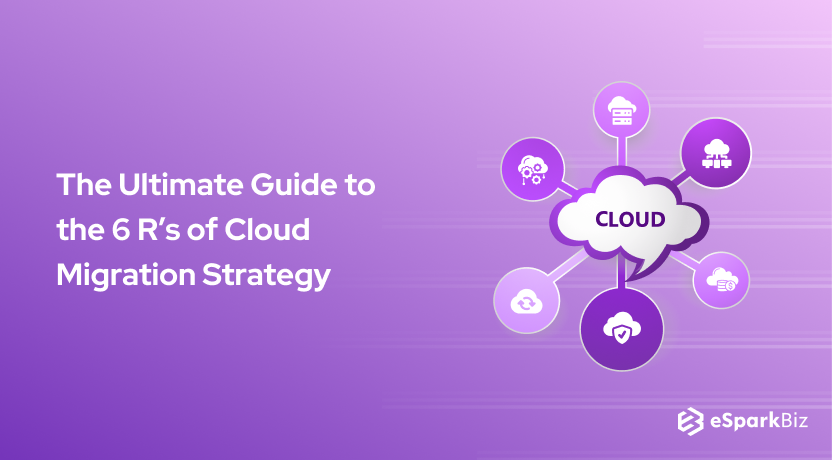According to Gartner, by 2025, 85% of companies worldwide are expected to embrace a cloud-first approach and the Global Cloud Computing Market is expected to surpass 2.2 trillion with a significant CAGR of 17.43% by 2032. This shift highlights the growing importance of cloud computing in driving innovation and efficiency in your business. As a business, embracing cloud computing can revolutionize your operations and drive growth.
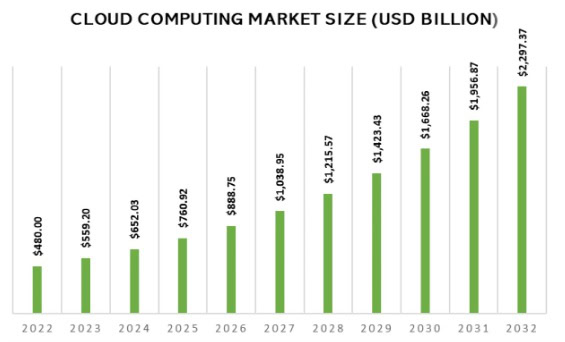
You will find that cloud technology is flexible, cost-effective and scalable and can be easily adjusted to the market and customer needs. Cloud computing is now a part of the contemporary technological landscape and is revolutionizing how organizations and individuals manage information.
Cloud computing has been around since the 1960s and has evolved to be a robust and resilient technology that enables organizations to access IT services through remote servers. Recently, you must have realized that cloud computing has gained popularity because of its flexibility, cost, and ability to encourage new solutions.
Today, cloud computing is not a trend but a necessity for your business as you go through the process of digitalization. Cloud computing is the backbone of AI, IoT, and many other technologies that can be beneficial to businesses in terms of their transformation and growth.
These cloud computing growth statistics will be useful for an IT specialist, an entrepreneur, and a layman who wants to know the current state and prospects of cloud computing. You will also get to learn how cloud computing is transforming businesses and technologies to enable you to be ready for the future.
100+ Cloud Computing Statistics
Cloud computing is the foundation of digital transformation and is used in various applications such as AI and machine learning, big data, and IoT. Now, let us look at the Cloud computing adoption statistics and understand them better.
Cloud Adoption Rates
Cloud adoption rates indicate how widely organizations are embracing cloud technologies, reflecting the growing trend towards using cloud services for various business needs.
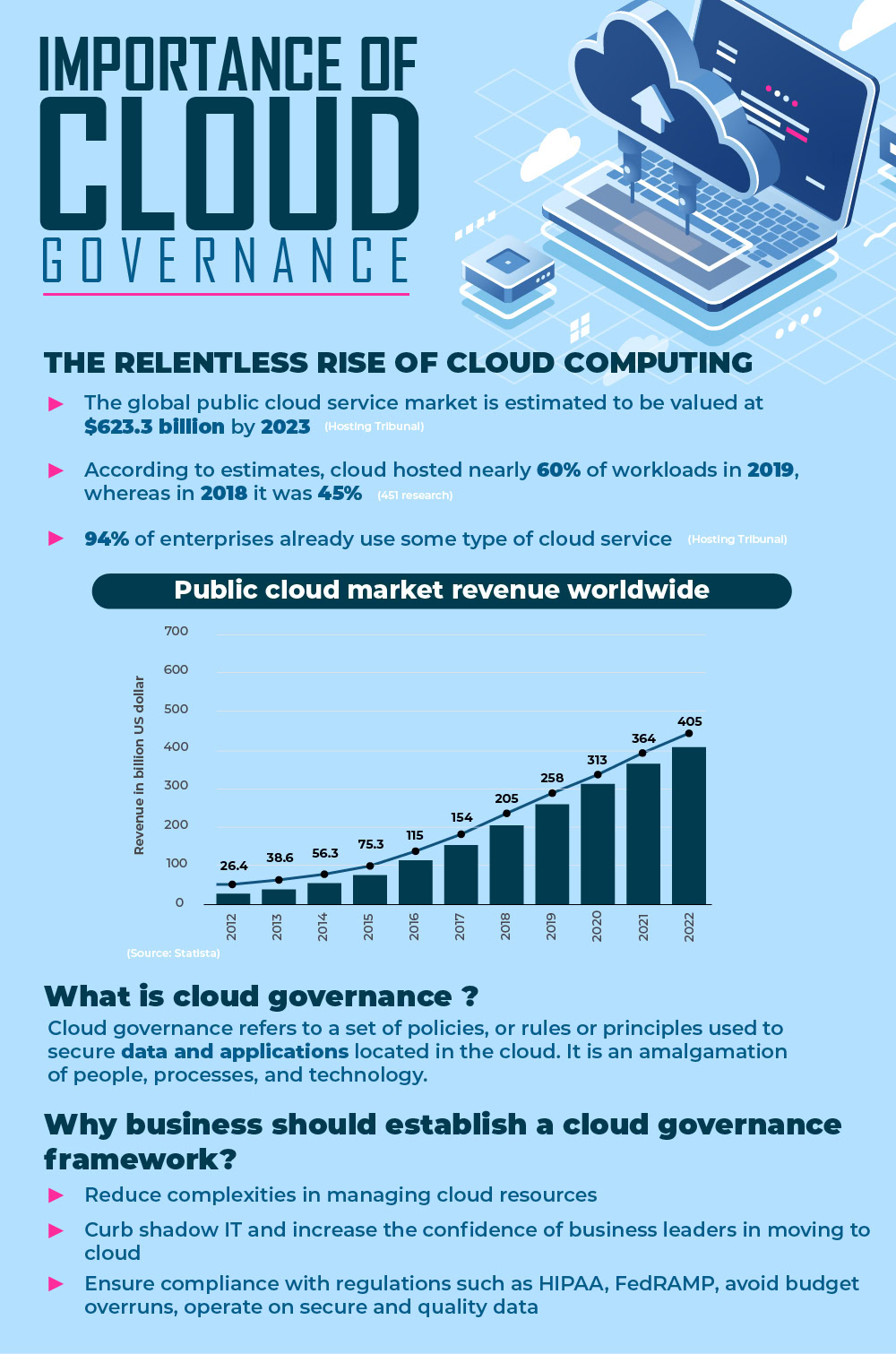
- In 2023, 94% of enterprises used cloud services, which shows the transition to cloud infrastructure. This is an indication of the importance of the cloud in current business operations as it is adopted by many organizations.
- According to the survey conducted by Zesty, in 2022, SMEs dedicated 47% of their technology budget to cloud expenses. This massive investment proves the importance of cloud solutions in the modernization and growth of your business.
- 31% of enterprises spend more than $12 million on public cloud services. This significant investment proves the importance of the cloud in your business processes and development.
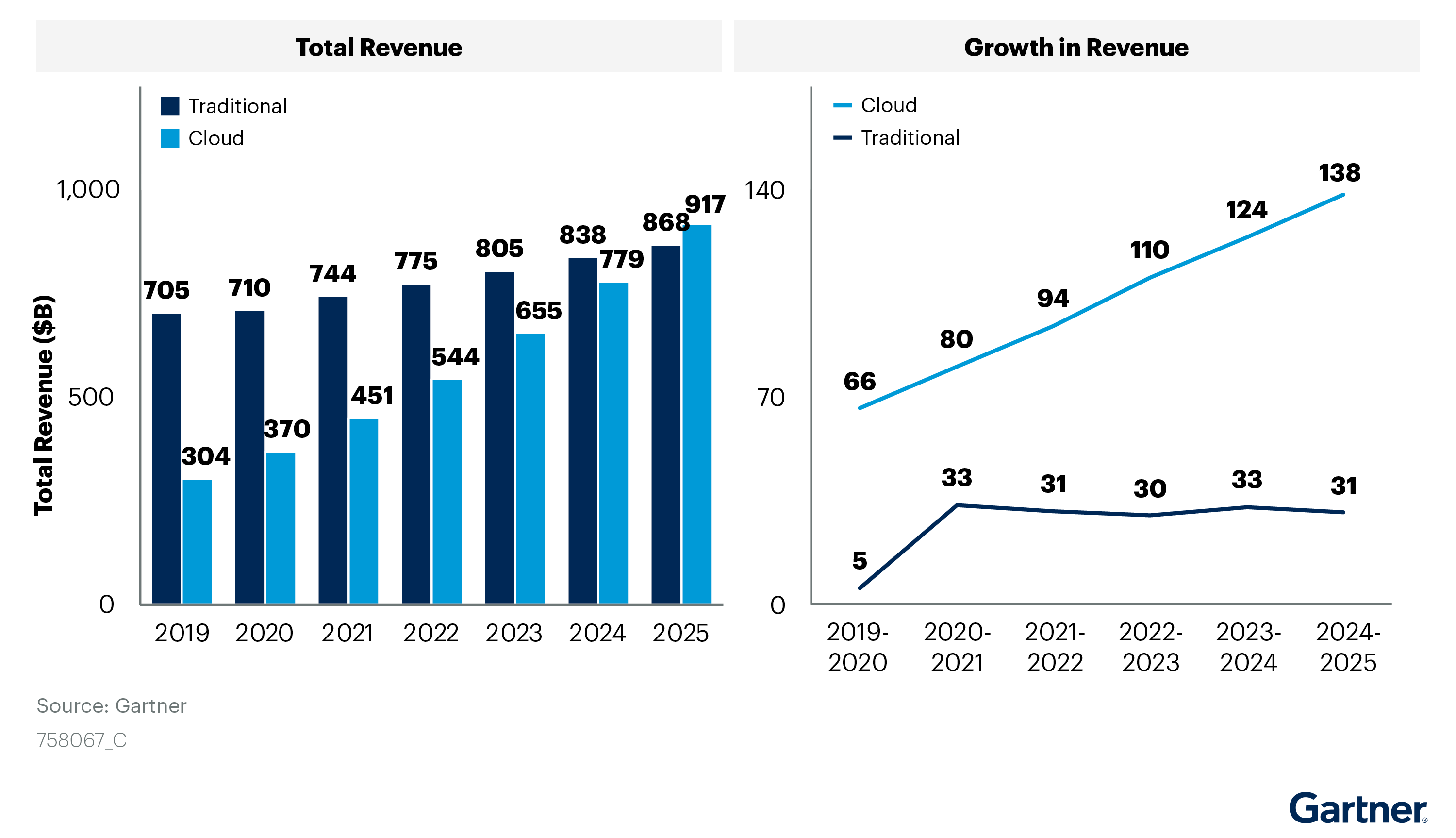
-
- By 2025, it is expected that 51% of the IT spending in traditional categories will shift to the public cloud from 41% in 2022. This is a shift towards cloud solutions as opposed to conventional systems and solutions.
- 89% of organizations are using multi-cloud architecture adopters. 80% are using hybrid cloud adopters.
Market Trends and Growth
Here, let’s look at the Cloud Computing Statistics of growth and market trends.

- The cloud computing market to reach $1266.4 billion by 2028. This fast growth indicates that the demand for cloud services is growing at a very fast rate.
- The market of cloud computing is forecasted to grow CAGR of 15.1% from 2023 to 2028. This steady growth shows that the cloud is becoming important in different fields.
- IaaS is one of the categories of cloud development services and is expected to generate a revenue of $183. 50 billion by 2024, which underlines its relevance and popularity at the present stage.
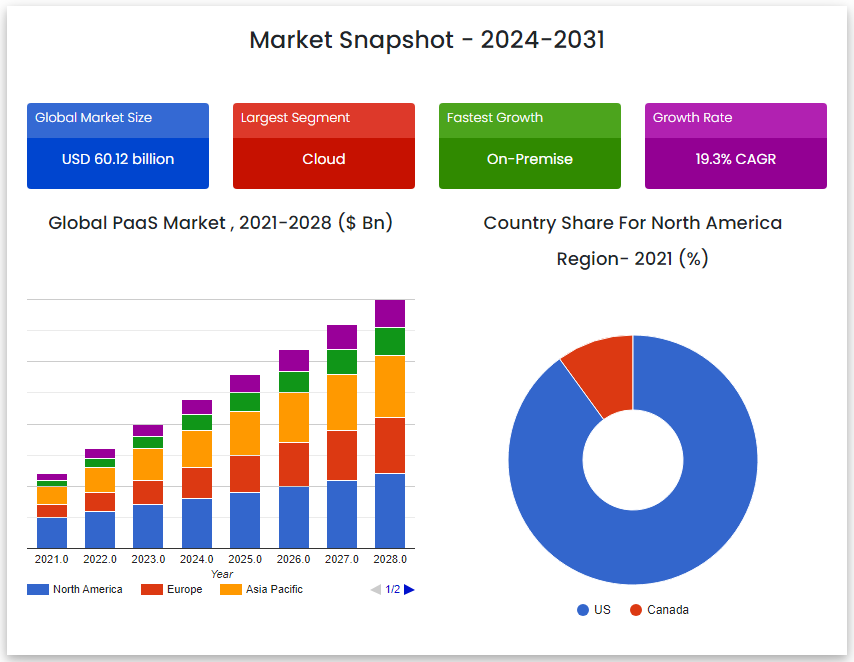
- The PaaS market is set to expand from $71.72 billion in 2023 to $351.09 billion by 2031, with a projected compound annual growth rate (CAGR) of 19.3% over the forecast period 2024-2031.
- SaaS Development Services has been the leading service, holding a 38.6% market share in 2022 in the public cloud computing industry.
Financial and Business Impact
The financial and business impact of cloud computing reveals significant cost savings and revenue growth opportunities for organizations.
- Organizations reduce their IT expenditure by approximately 20% in the case of cloud computing. This leads to effective cloud cost optimization by cutting down on the expenses of equipment, maintenance, and infrastructure and at the same time enhancing efficiency.
- Cloud solutions help organizations to raise revenues by 15%.
- Cloud computing is currently taking 32% of the IT budget; this shows how important it is in the current business models.
- The study also showed that 61% of the firms that have embraced the cloud have noted improved efficiency and effectiveness of the business processes.
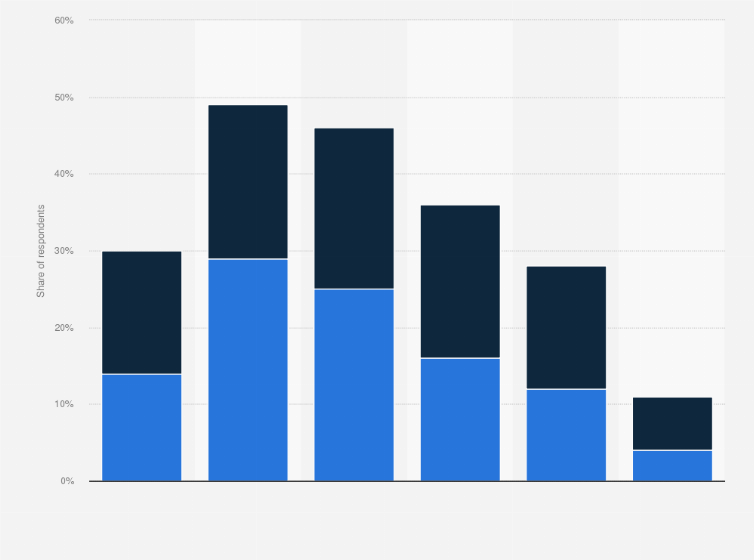
- Regarding the ROI of cloud technologies, 21% of C-Suite executives expect it in approximately one year, while 29% of IT leaders expect it in the next six months in 2023.
Benefits of Cloud Computing
Now let’s explore and see how cloud computing statistics are helping businesses with innovative technologies and services.

- The potential for cloud innovation to generate an impressive $3 trillion in EBITDA by 2030 is remarkable.
- 90% of the organizations are using the cloud, which increased by 88% the previous year.
- 70% of organizations adopt cloud-based solutions to maintain business operations and safeguard data in the face of disruptions or disasters.
- According to NTT’s 2021 Hybrid Cloud Report, around 89% of businesses in India stated that the pandemic has made them more dependent on technology than ever before.
- 82% of the companies report enhanced cooperation and communication with cloud applications services and solutions.
Security Concerns and Measures
- A recent survey revealed that 28% of organisations faced at least one cloud-related data breach in the last year, which shows that the security issues have not been resolved.

- The revenue in the cloud security market is expected to reach $32.03 million by 2024. This investment comprises improving the encryption, identity, and threat detection systems.
- 64% of businesses use encryption to protect data in the cloud.
- 90% of businesses cite cloud security as one of the most crucial factors for the success with end-to-end cloud strategy consulting.
- According to the survey, 41% of organizations are implementing a zero-trust security model to improve cloud security.
Industry-Specific Statistics
Industry-specific cloud computing statistics will provide you with insights into how cloud adoption is progressing across different sectors.
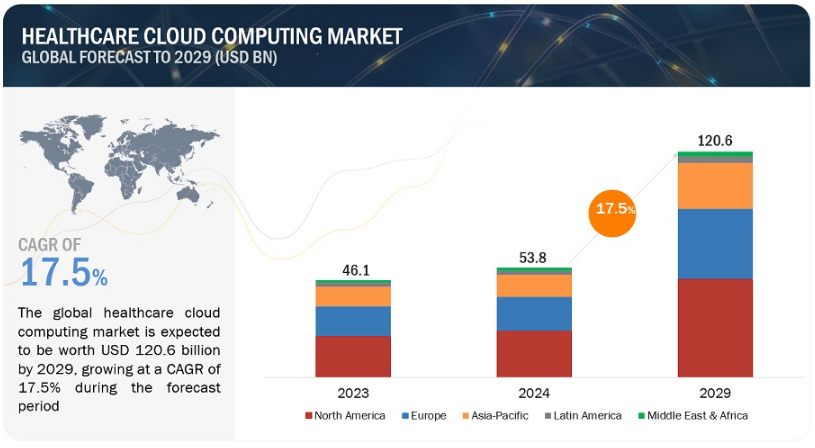
- Markets and Markets has estimated global healthcare to be $53.8 billion in 2024
- The current cloud adoption rate in the financial sector is 75% and the areas of its application are safe transactions and data analysis.
- 85% of educational organizations and institutions apply cloud services for e-learning and administrative purposes. The cloud facilitates the teaching and learning process by conducting online classes, sharing resources and managing learning activities.

- Currently, 67% of retailers are using cloud computing in the management of inventory and customer relations.
- The market for cloud manufacturing is expected to be $200 billion by 2030 with a compound annual growth rate (CAGR) of 16.1% from 2023 to 2030.
Cloud Service Providers
- AWS currently dominates the market with a 31% market share, which makes it the market leader in cloud services. In recent times, a lot of companies are leveraging AWS Cloud Migration services as it provides vast services including computing, storage and database services.
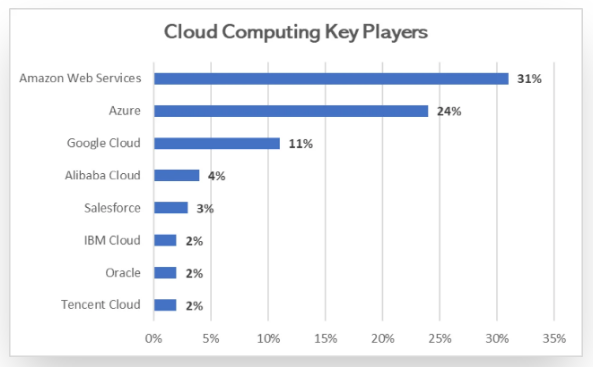
- Microsoft Azure is currently at 24% market share and is rapidly growing because of its enterprise solutions. Microsoft Azure is compatible with other Microsoft products and offers strong cloud services to companies.
- Google Cloud has grown to 28% in the top 10 providers. Google Cloud has more sophisticated features for big data, AI, and machine learning.
- Alibaba Cloud is the no 1 leader in the Asia-Pacific region with a 19.6% market share. It offers reliable and elastic cloud solutions, especially used in the internet shopping and digital economy domains.
- IBM Cloud is on hybrid and multi-cloud, and it has a market share of 6%.
Also Read : SaaS Migration Models: Making the Move Smooth with AWS Services
Future Projections
Cloud computing adoption statistics and future projections reveal the growing reliance on cloud technologies and predict continued expansion and innovation in various industries.
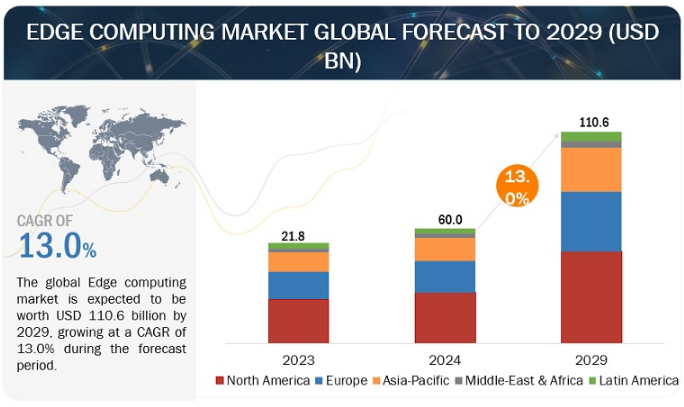
- The edge computing market is expected to grow from USD 60 Billion to 110.6 Billion by 2029 at a compound annual growth rate of 13%. Edge computing reduces latency by processing data closer to the source, enhancing real-time applications.
- According to report, 92% of businesses will be considering cloud computing to facilitate AI automation. AI solutions are developed and deployed using the cloud as the platform and environment.
- 5G networks will drive cloud computing usage 68% of organizations planning to use 5 G-enabled cloud solutions. 5G and cloud integration solutions improves speed, connectivity, and real-time processing.

- The market of serverless computing is projected to reach 50.86 billion USD by 2031 growing at a CAGR of 22.8%. This helps developers to develop and host applications without having to deal with servers.
- Cloud providers are investing in quantum computing, with 15% of enterprises exploring its potential applications. Quantum computing is expected to be more efficient in solving problems than classical computers.
Environmental Impact
Cloud computing growth statistics highlight the rapid expansion of cloud services while also underscoring the environmental impact.
- Data centres located in the cloud are 80% more efficient than those that are located on-site. They employ state-of-the-art cooling systems and energy management techniques to minimize energy usage.
- Companies can reduce their carbon footprint by 30% by migrating to cloud computing. The commonality of cloud data centres makes it possible to use resources efficiently and hence minimize emissions.
- 58% of cloud providers use renewable energy to power their data centres. This commitment to green energy is useful in minimizing the effects of cloud services and solution on the environment.
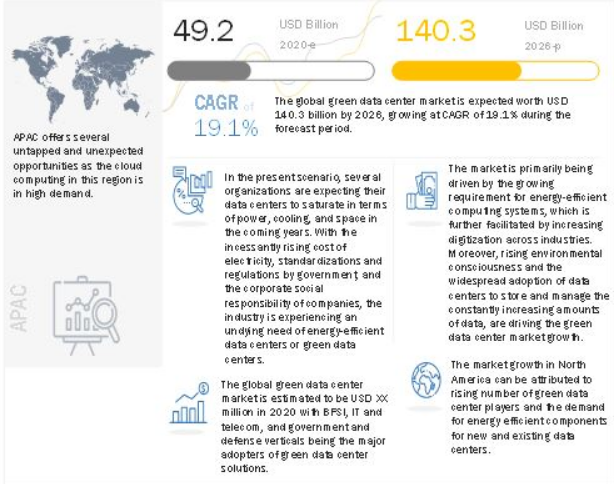
- The green cloud computing market is predicted to grow to $140.3 billion by 2026. This market is oriented toward green IT solutions and technologies in cloud computing.
- 45% of businesses consider sustainability when selecting cloud providers. Businesses are now integrating environmental concerns into their cloud plans to help address worldwide sustainability objectives.
Cloud Migration Challenges
- 43% of companies reported that data migration to the cloud is difficult because of data integrity and compatibility. Data integrity is also a major consideration in data transfer, particularly to avoid loss or corruption of data.
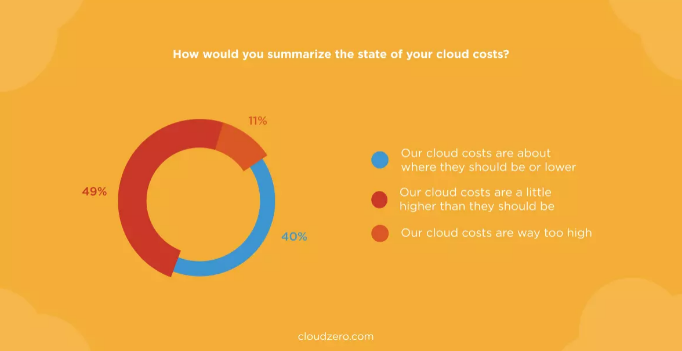
- According to the survey, 49% of companies experience difficulties in controlling cloud expenses and face the problem of overspending. Several best practices should be implemented to ensure that cloud costs are controlled and unnecessary expenses are prevented.
- The study shows that 54% of the organizations said that the shortage of skilled professionals is a challenge to cloud adoption.
- 46% of companies face various cloud computing challenges while integrating legacy systems with cloud platforms.
- 29% of businesses are concerned about potential downtime during cloud migration. It is important to avoid any interruption of the business processes when migrating to a new platform.
Cloud Computing and Digital Transformation
- 87% of the companies regard cloud computing as an important enabler of digital transformation services. Cloud is the supporting structure of the business processes and the place where new ideas are born.
- 75% of businesses are using cloud services to innovate and to build new products and services. Cloud is fast in experimentation and deployment since it is flexible and can be scaled up or down as needed.
- The study shows that 68% of organizations improve the customer experience through cloud solutions. Cloud technologies increase the individuality of communications, the effectiveness of services, and the satisfaction of customers.
- Cloud computing has been adopted and 72% of the firms have reported that business flexibility has been enhanced. The cloud enables one to adapt to market conditions better, make decisions faster, and grow the business.
- 78% of organizations are using cloud strategies to update their technology portfolios and incorporate intelligence into business applications. The application modernization solutions also involves adding intelligent features to business applications to enhance their performance.
Cloud Computing in Emerging Technologies
- 82% of IoT applications store and process their data in the cloud. The cloud addresses the issues of big data and connectivity of IoT applications, devices and systems.
- 30% of blockchain projects are deployed on cloud solutions to enhance the availability and security of the applications. Cloud computing is beneficial for the decentralized architecture and computations in blockchain solutions.
- Rendering and content distribution in 40% of VR applications utilize cloud computing. The cloud is utilized to provide the computational resources necessary for realistic VR and real-time interactions.
- 35% of AR developers use cloud services to enhance the experience of the users. AR applications benefit from the cloud in terms of data processing, storage, and real-time analysis.
- Today, 74% of big data projects are run in the cloud, which is a computing and storage platform. Cloud is efficient in handling big data and analysis of the same.
Also Read : Multi Tenant Architecture For Your SaaS Applications
Open-source Cloud statistics
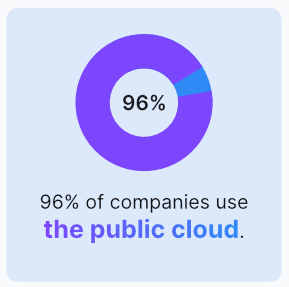
- The public cloud is used by 96% of companies, because it’s cheaper than the private ones, making it the preferred choice. With public clouds, you can control your spending while at the same time gaining access to powerful computing resources.
- The average of firms is 2.2 public clouds for the execution of their business processes. This multi-cloud strategy is useful in load distribution and resource management.
- Half of your organization’s workload is typically maintained on public clouds. This means significant portions of your business processes and data storage are managed through public cloud platforms.
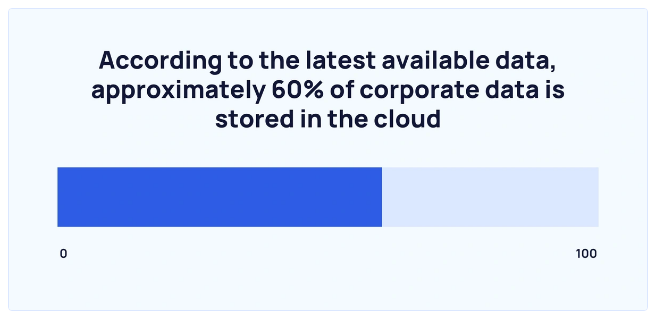
- 60% of corporate data is stored in cloud and also around 50% of the companies specially use public cloud for data storage. This trend shows more sustainable and easily available data management solutions.
- Almost all businesses, including yours, use at least one public cloud; the percentage is 95.9%. This shows that public cloud services are very dependable.
Cloud Computing and Artificial Intelligence (AI)
- According to research, 85% of AI projects are built and run on cloud environments. The cloud offers the computational infrastructure and flexibility for training and deploying AI models.
- 72% of machine learning initiatives use cloud-based tools for training and deployment. The cloud provides strong machine-learning platforms and services to data scientists and developers.
- According to the survey, 63% of NLP projects use cloud computing for handling big data and model training. The cloud provides the necessary computational power for the computations needed in NLP.
- 58% of computer vision applications are hosted on cloud platforms, utilizing their computational power for image analysis. The cloud provides real-time processing and the ability to scale for computer vision tasks.
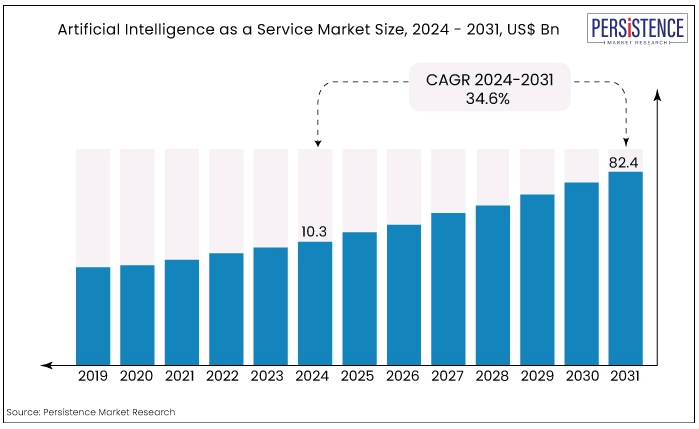
- The market for AIaaS is anticipated to grow at a CAGR of 34.6% by 2032. AIaaS enables organizations to obtain AI application solutions without having to invest in the necessary skills or equipment.
Cloud computing in different regions
- North America is the largest market for public cloud computing, expected to reach US $413.10 Billion in 2024. The market is driven by the high level of technological development and the need for cloud consulting services.
- Europe is the second largest market in the world with a growth in GDPR-compliant cloud services. Businesses in Europe are very conscious of data privacy and compliance issues, which define the cloud market.
- The Asia-Pacific region is also growing with the cloud market expected to grow at a CAGR of 16.6% from 2020 to 2030. This expansion is due to the region’s expanding digital economy and the rising use of cloud services.
- Cloud adoption in Latin America is estimated to grow at a CAGR of 18.7% from 2023 to 2027 due to the digital transformation. Organizations in the region are now adopting cloud solutions for their operations.
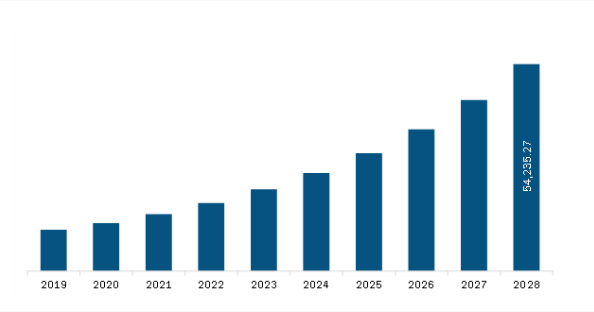
- The cloud market in the Middle East and Africa is expected to grow at a CAGR of 20.4%% between 2022 – 2028. Digitalization and smart city projects are on the rise in the region, which drives cloud adoption.
Cloud Computing for Startups
- The survey revealed that 68% of startups use cloud services due to their affordability and low initial costs. Cloud computing eliminates the need for large capital investments in hardware and other related structures.
- According to the survey, fintech startups use cloud platforms to reduce their time to market by 75%. The cloud has all the tools and platforms required for fast software product development, testing, and deployment.

- According to the statistics, 92% of enterprises rely on multi cloud strategy to kick-start and grow their companies. The cloud is cheap, easy to implement and scalable; thus, it is suitable for startups.
- According to the survey, 83% of startups are using cloud services to create new products and services. The cloud’s characteristics of flexibility and scalability allow startups to try out new ideas and technologies.
- 69% of startups leverage cloud-based solutions to take their operations to an international level. The cloud offers the resources required for growth at the global level and serves as a foundation for the company’s expansion into new markets.
Cloud Computing and Data Management
- Currently, 88% of companies use the cloud for storing some or all of their data. Cloud storage is scalable, redundant and accessible and therefore it is widely used for data storage.
- Cloud backup solutions are used by 77% of businesses for data protection. The cloud offers safe and effective means of data storage and copies to avoid loss or damage to the data.
- Cloud-based data analytics services & tools are used by 81% of organizations to analyze their data. The cloud provides strong analytics tools that enable real-time processing and analysis of data and making decisions.
- Data governance policies are adopted in the cloud environment by 56% of the companies. Data governance is an important aspect of the management of data as it deals with data quality, security and adherence to the set legal requirements.
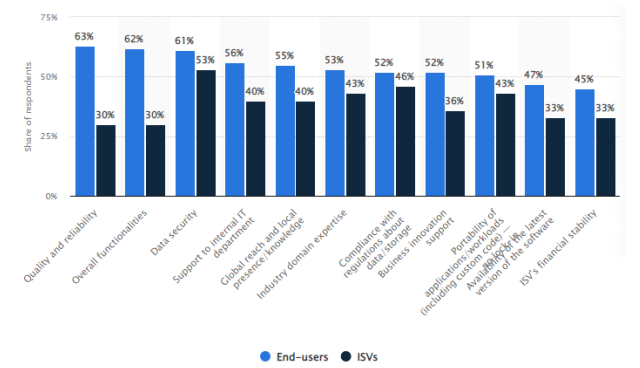
- According to the survey, 61% of companies pay special attention to the protection of data while selecting cloud services. Security of data is one of the most important factors that should be considered when choosing a cloud service.
Cloud Computing and Application Development
- According to the survey, 70% of organizations use DevOps practices in the cloud for the development and deployment of applications.
- It also shows that 63% of businesses implement CI/CD pipelines in the cloud to automate the delivery of software. DevOps CI/CD Services help to deliver new releases and features faster and with higher quality.

- 61% of organizations use containerization solutions like Docker and Kubernetes in the cloud. Containers are a reliable and effective means of packaging and running applications in various environments.
- 54% of companies develop microservices-based applications using cloud platforms. Microservice best practices and its architecture helps in the development of applications in a modular form, scalability and easy maintenance of large applications.
- 58% of organizations apply cloud-based API management solutions to improve their applications. API management is the process of securing, monitoring, and enhancing APIs which are crucial in today’s applications.
Cloud Computing and Networking
Cloud computing enhances networking by improving efficiency, flexibility, and scalability for seamless connectivity and data management.
- 47% of companies use SDN in the cloud to have more flexible networks. SDN provides the capability of controlling and adapting the resources in the network from a central point.
- According to the survey, 35% of organizations employ NFV to virtualize the network services in the cloud. NFV decreases the reliance on hardware and enhances the flexibility in implementing network functions.
- CDNs are employed by 64% of companies to deliver content at high speed and in the shortest time possible to users across the globe. CDNs lower the response time and enhance the effectiveness of websites and applications.
- 52% of the companies are using cloud-based load balancing to balance the traffic and achieve high availability. Load balancing helps in managing resources in the best way possible and also improves the dependability of the applications.

- Cloud-based VPNs are adopted by 93% of businesses for secure remote access. VPNs offer secure connections, and this makes it easy for data to be protected and communication between remote employees to be secure.
Challenges and Issues in Cloud Computing
Challenges and issues in cloud computing, combined with cloud computing statistics, provide a comprehensive view of the obstacles organizations faces.

- In 2022, 47% of respondents stated that avoiding cloud vendor lock-in was crucial to them. This flexibility is essential for them to avoid dependency on one provider and to leverage competitive pricing, better features, or improved services from different vendors.
- 28% of companies say that latency is a problem in cloud computing, especially for real-time applications. Lowering latency is important for applications that need quick response time and this includes gaming and trading.
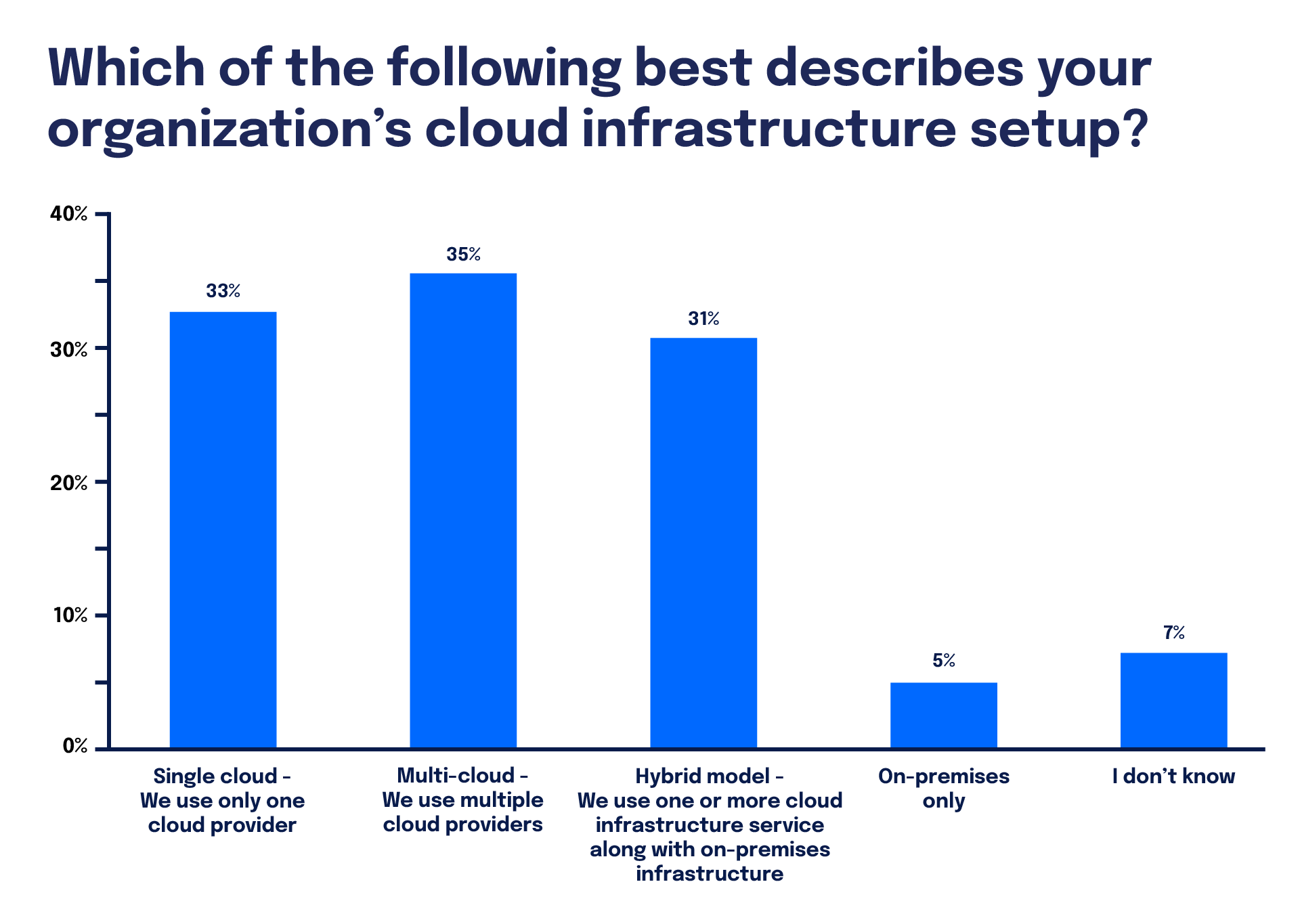
- According to the current report, approximately 33% of organizations depend exclusively on a single cloud provider.
- 53% of businesses ensure that they incorporate cloud cost optimization services and measures to ensure that they can manage the costs of cloud computing.
Cloud Computing in the Gaming Industry
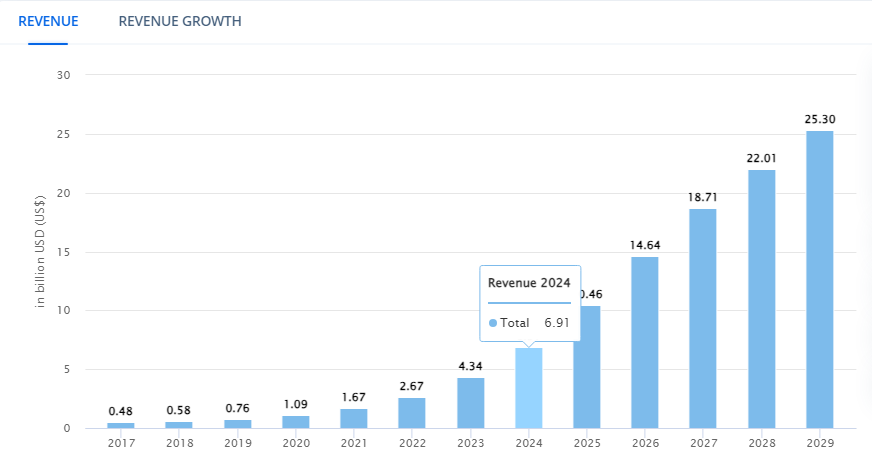
- The cloud gaming market is predicted to be worth US $6.91 bn by 2024. Cloud gaming players can play games on the cloud and do not require powerful hardware for gaming.
- According to the gamers, 62% have had a better video experience with cloud gaming because of low latency and high graphics.
Conclusion
Cloud computing growth statistics have shown how the business world and organizations function and grow in the modern world. The advantages of cloud computing include scalability and cost reduction to support the implementation of complex technologies such as artificial intelligence and the Internet of Things.
By looking at the cloud computing adoption statistics, and general cloud computing it’s clear that cloud technology has become integral to modern business operations.







